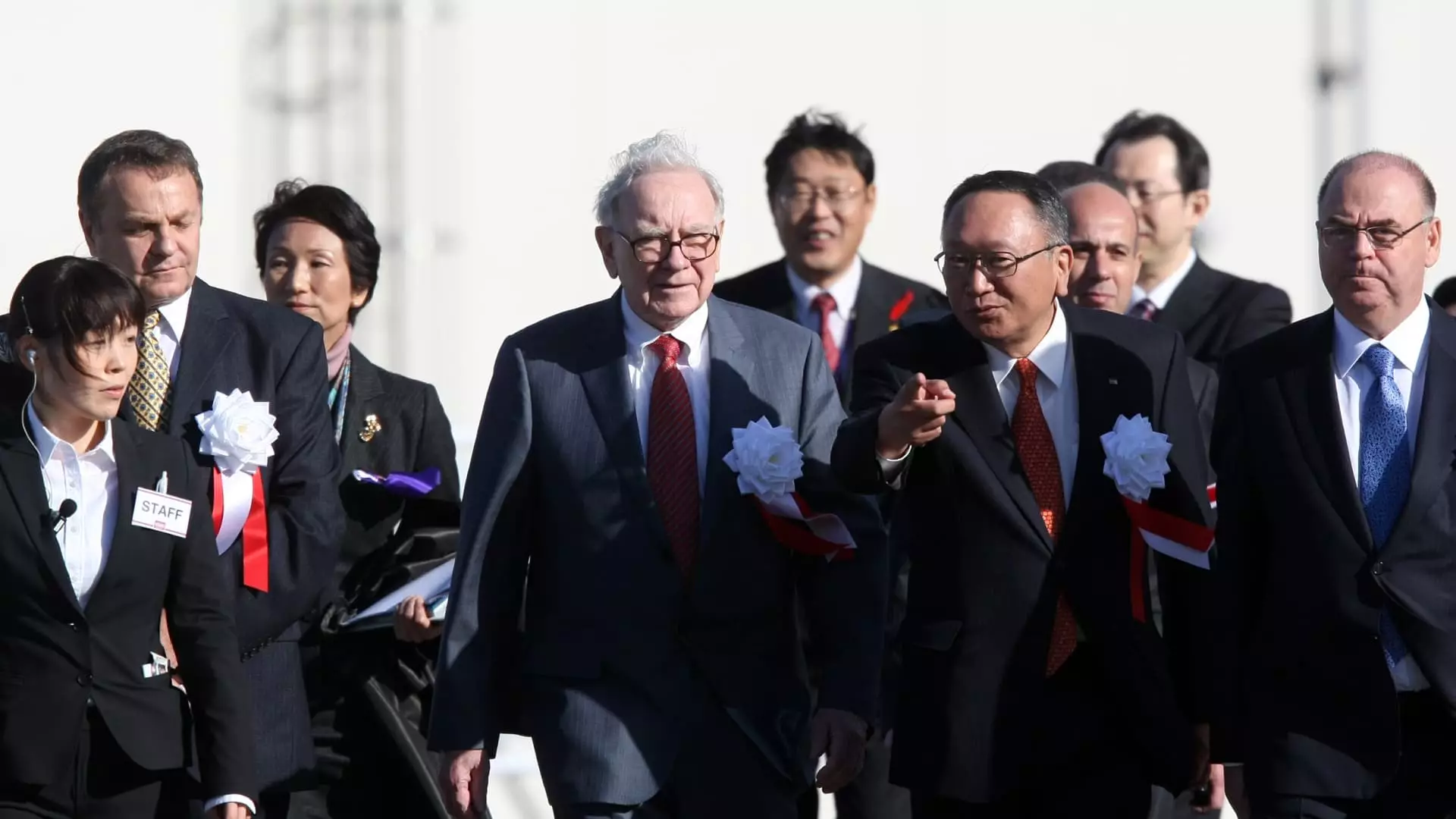In a recent letter to shareholders, Warren Buffett emphasized Berkshire Hathaway’s enduring commitment to its investments in Japan, marking a significant strategic evolution. Originally, Berkshire had maintained a limit on ownership at 10% for each of the five Japanese trading companies in its portfolio: Itochu, Marubeni, Mitsubishi, Mitsui, and Sumitomo. However, as Buffett noted, the arrangement has shifted. The companies have mutually agreed to relax this ceiling, allowing Berkshire to expand its stake gradually.
Buffett’s acknowledgment of this strategic shift signals not just a numerical change but a reflection of confidence in the long-term viability of these trading houses, which operate similarly to Berkshire itself. These “sogo shosha” are emblematic of Japan’s diverse economic landscape, engaging in varied sectors both domestically and globally. This expansion aligns with Berkshire’s philosophy of making calculated investments over extended periods, indicative of Buffett’s faith in the potential profitability of these firms.
Financial Gains and Market Performance
As of the end of 2024, Berkshire’s holdings in the Japanese market boasted a valuation of approximately $23.5 billion against a cost basis of $13.8 billion, showcasing a robust return on investment. Despite the promising figures, it’s essential to note that the performance of these trading houses has faced challenges recently. Notably, Itochu and Marubeni have seen declines exceeding 8%, while Mitsubishi’s shares have plummeted by 26%. These figures paint a complex picture, suggesting that while there are long-term advantages to the investment strategy, the immediate market environment has been turbulent.
Buffett has adeptly leveraged his positions to mitigate risks, including issuing yen-denominated bonds. This approach not only supports Berkshire’s minority stakes but also helps hedge against foreign exchange volatility. The company reported substantial after-tax gains from its Japanese bond holdings, further underscoring Buffett’s skillful management of currency risks.
Future Projections and Dividend Expectations
Looking ahead, the Oracle of Omaha projects a steady annual dividend income of approximately $812 million from these investments. This expectation is rooted in the belief that these companies will generate dependable cash flows that can contribute to Berkshire’s overall financial health. Buffett expressed confidence that his successor, Greg Abel, along with future leaders, will continue to steward these investments effectively for decades to come.
Buffett’s unwavering optimism about the synergy between Berkshire and these trading houses suggests not only the expectation of dividend returns but also potential collaborative ventures that could enhance long-term growth. This perspective aligns with Buffett’s investment philosophy, where he often seeks to establish mutually beneficial, enduring relationships with the firms in which he invests.
Berkshire Hathaway’s strategic move to increase its stake in Japan’s trading houses reflects a broader long-term investment vision. While the past year has presented market challenges, Buffett’s calculated approach to risk management and his optimistic outlook for continued fruitful collaboration illustrate his commitment to these investments. For investors, this narrative of resilience and adaptability reinforces the idea that patient investment in quality assets can yield significant returns, even amidst volatility. As Berkshire steps into this new chapter, it reaffirms its strategic position as a formidable player in the global market.

Leave a Reply